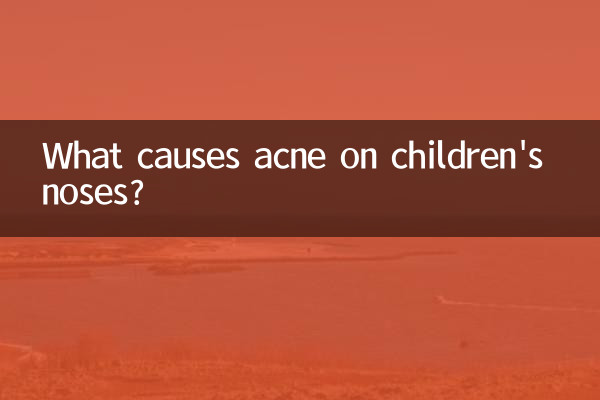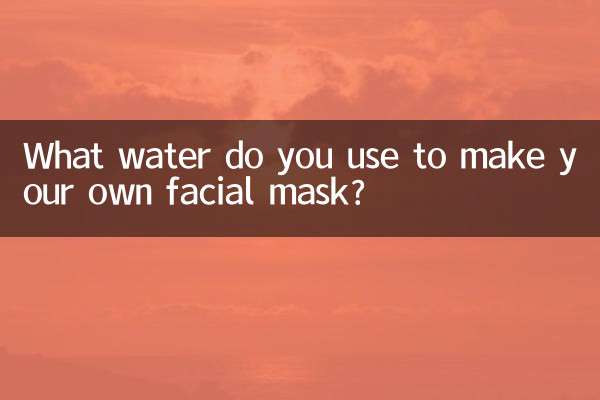What causes acne on children's noses?
In recent years, children's skin problems have gradually become one of the hot topics of concern to parents. Especially the phenomenon of acne on children's noses makes many parents confused and worried. This article will sort out relevant data from popular discussions on the Internet in the past 10 days, analyze the common causes of acne on children's noses, and provide structured data for reference.
According to recent discussions on social media and health forums, the main causes of nose acne in children include the following:

| Cause classification | Specific performance | Proportion (reference data) |
|---|---|---|
| endocrine factors | Prepubertal hormone fluctuations | 25% |
| Dietary effects | High sugar and high oil food intake | 30% |
| hygiene habits | Under- or over-cleaning | 20% |
| allergic reaction | Exposure to allergens such as pollen and mites | 15% |
| other factors | genetics, stress or environmental stimuli | 10% |
1. Endocrine factors
Some children experience fluctuations in hormone levels before puberty, leading to overproduction of sebaceous glands, which can lead to nose acne. This condition is usually accompanied by mild redness and swelling, but no over-intervention is required as long as it is kept clean.
2. Influence of diet
Data shows that 30% of cases are related to diet. Children who consume too much high-sugar and high-fat foods (such as chocolate and fried foods) may stimulate sebum secretion and aggravate acne problems. It is recommended to adjust the diet structure and increase the intake of fruits and vegetables.
3. Hygiene habits
20% of parents reported problems with their children's cleaning habits. Over-cleansing can damage the skin barrier, while under-cleansing can lead to clogged pores. It is recommended to use mild children's cleansing products and cleanse 1-2 times a day.
4. Allergic reaction
15% of cases are related to allergies. Allergens such as pollen and dust mites in spring may cause local skin inflammation, manifesting as rash or acne around the nose. If it is accompanied by itching or sneezing, consider allergic factors and seek medical attention promptly.
5. Other factors
Heredity, study stress or environmental pollution may also indirectly cause skin problems. For example, children with a family history of acne are at higher risk, and air pollution can exacerbate skin sensitivity.
Tips for parents to cope with
For different reasons, the following measures can be taken:
| Question type | solution |
|---|---|
| mild acne | Apply children's moisturizing cream topically, avoiding squeezing |
| Diet related | Reduce snack intake and drink more water |
| Suspected allergy | Record dietary and environmental exposure history, and consult a doctor |
| persists | Seek medical attention promptly to rule out fungal infection and other possibilities |
In summary, most nose acne in children is a benign phenomenon, but the cause needs to be determined based on the specific symptoms. Most problems can be improved by adjusting lifestyle habits and scientific care. If symptoms persist or worsen, it is recommended to seek help from a professional dermatologist.

check the details

check the details